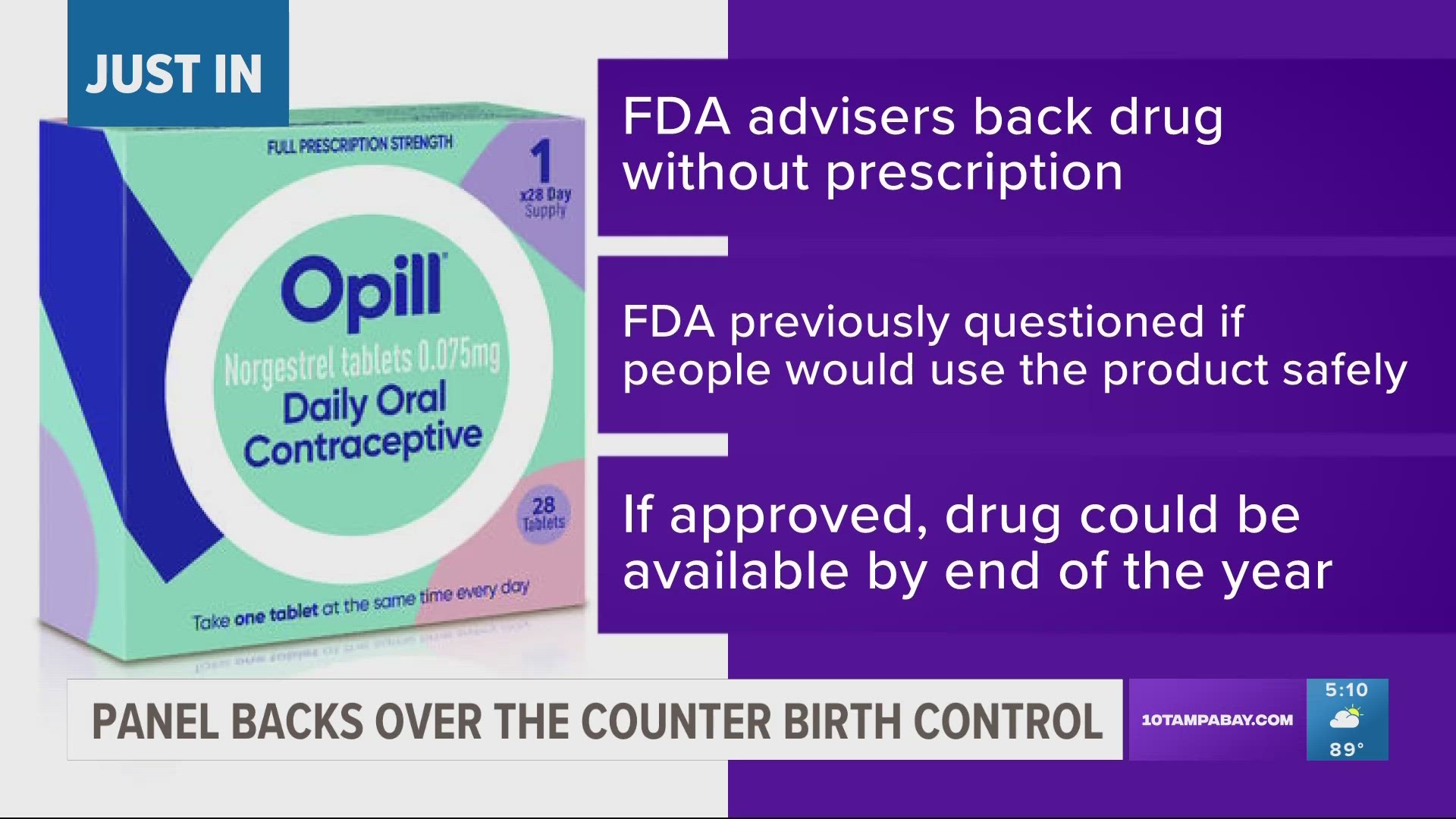Federal health advisors announced on Wednesday that a long-standing birth control pill could potentially be sold over the counter, potentially leading to the first non-prescription contraceptive medication in the U.S. A panel of FDA advisors unanimously supported Perrigo’s proposal to sell its daily medication alongside products like eye drops and allergy pills. The recommendation came after a two-day meeting discussing whether women could safely and effectively use the pill without professional supervision. The FDA is expected to make its final decision this summer.

If the agency follows the non-binding recommendation, Perrigo’s drug, Opill, would become the first contraceptive pill available without a prescription. The company stated that sales could commence late this year if approved. External experts mostly expressed confidence that women of all ages could use the drug appropriately without consulting a healthcare provider first.
“In the balance between benefit and risk, we’d have a hard time justifying not taking this action,” said Maria Coyle, an Ohio State University pharmacist who chaired the panel. “The drug is incredibly effective, and I think it will be effective in the over-the-counter realm just as it is in the prescription realm.”
Despite numerous criticisms from FDA scientists regarding how Perrigo studied the drug, including questions about whether study participants could understand and follow labeling instructions, the panel largely dismissed these concerns. Instead, they emphasized the advantages of providing more effective birth control, particularly to young people and lower-income groups, than what is currently available over the counter, such as condoms and gels.
Opill belongs to an older class of contraceptives containing only progestin, which generally has fewer side effects and health risks but may be less effective if not taken consistently at the same time daily. Although the FDA’s decision will not apply to other birth control pills, advocates hope that an approval might encourage other drugmakers to seek over-the-counter sales. In many parts of South America, Asia, and Africa, birth control pills are available without a prescription.
Approved in the U.S. five decades ago, Opill was shown to be over 90% effective in preventing pregnancy when taken daily. However, it remains uncertain how popular it might be if approved for over-the-counter use, as Opill has not been marketed in the U.S. since 2005.
Certain women, particularly those with breast cancer, should avoid taking Opill due to the risk of accelerating tumor growth. Women experiencing unusual vaginal bleeding are advised to consult a doctor before using it, as bleeding could signify a severe health issue. However, in reading comprehension studies conducted by Perrigo, 68% of women with unexplained bleeding incorrectly believed they could take the drug. A few women with breast cancer also indicated they could use Opill.
Panel members noted that nearly all women with a history of breast cancer would be under the care of a cancer specialist who would advise against taking hormonal drugs that could exacerbate their condition. “I would think any woman who had a breast cancer diagnosis in the past would be highly aware of that, so I don’t think that’s going to be a concern,” said Dr. Deborah Armstrong of Johns Hopkins University.
Perrigo claimed its 880-patient study demonstrated that women would consistently take the pill daily if made available over the counter. However, the FDA identified several issues with the study, including over 30% of participants who mistakenly reported taking more pills than they were given. FDA reviewers argued that this problem cast doubt on the company’s overall conclusions about the drug’s use and effectiveness.
FDA regulators also suggested that changes in U.S. demographics since the pill was first tested—including increased obesity and other chronic conditions—could diminish the drug’s effectiveness. Despite these concerns, Opill has garnered support from numerous reproductive rights and medical groups advocating for broader access to birth control.
“Opill over the counter would give us one more option for access and the more options that are available the better,” stated Clare Coleman, president of the National Family Planning and Reproductive Health Association. Coleman was among over 25 speakers who endorsed Perrigo’s application during a public comment session on Tuesday.
Catholic organizations, including the United States Conference of Catholic Bishops, oppose the move, arguing that women should be evaluated by a doctor before receiving the drug. Perrigo has not publicly discussed pricing for the drug if approved. Non-prescription medications are typically less expensive, but they are generally not covered by insurance. Requiring insurers to cover over-the-counter birth control would necessitate a regulatory change by the federal government.











